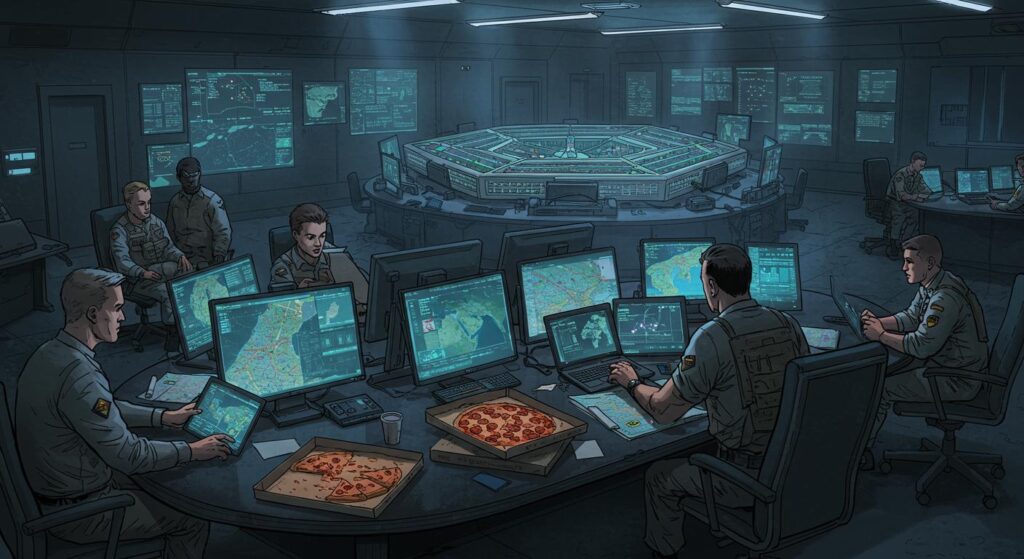There’s a timeless ritual at rock festivals: the mosh pit, that swirling, chaotic galaxy of elbows, boots, and camaraderie where the rules of decorum—and sometimes gravity—are gleefully set aside. At this year’s Download Festival in Donington Park, though, there’s an unexpected twist. According to BBC News, your smartwatch might just be the most overzealous crowd-surfer of all—frantically calling emergency services mid-breakdown.
The March of the Wearables (and Accidental Maydays)
Described in reports by both the BBC and Yahoo News, Download Festival’s tens of thousands of rock fans—this year’s roster includes Green Day, Sleep Token, and Korn—are apparently at risk of giving emergency operators a run for their money. Every year, when the three-day festival descends on Donington, Leicestershire Police typically manage about 600 emergency calls and a further 800 calls to the 101 non-emergency number. But during Download, that number may spike by an extra 700 calls, with the vast majority coming from bodyworn technology that’s a bit too eager to detect “collisions.”
Officials told BBC News that smart watches and fitness trackers, jostled by the kinetic energy of the pit, frequently interpret enthusiastic moshing as a crash or fall, automatically dialing 999 on their wearers’ behalf. A police spokesperson emphasized the burden this creates for handlers, stating that each call must be checked, including three outbound attempts to ensure the caller is safe.
Yahoo News also notes that these “hundreds of accidental ambulance calls” are enough to tax the entire region’s emergency response, echoing the BBC’s point that each unintentional alert means less time for genuine emergencies. The outlet highlights how festivalgoers’ wearable technology, for all its good intentions, can trip up public safety systems during mass gatherings.
Staying Safe (and Disconnected?)
Festival organizers are now urging attendees to switch their wearables into airplane mode before launching themselves into a circle pit. In a detail highlighted by the BBC, the advice is intended to keep emergency lines open for true crises, not just overenthusiastic step counters. And in the event a 999 call does get placed by your wrist, the police request you stay on the line to confirm you’re not accidentally requesting a full-scale rescue while crowd-surfing to “American Idiot.”
Both sources point out the ripple effect: Every accidental call pulls human attention away from potential real emergencies—a scenario that was once hard to imagine when the greatest festival hazard was running out of dry socks.
A Pit Full of Algorithms
There’s something oddly reassuring—and yet mildly absurd—about the notion that our wearables are so devoted to protecting us, they’ll raise the alarm at the faintest hint of a headbanging incident. The BBC’s report, paired with details from Yahoo, reveals how festival culture and digital oversight now collide (sometimes literally). It’s left authorities scrambling to triple-check calls from thousands of wrists convinced their humans are in peril.
How long before you need to sign a smartphone waiver before entering a mosh pit? Will the next innovation be “analogue-friendly” lanes for those who want to disconnect without triggering a digital disaster? Perhaps the ultimate badge of honor for festival survival used to be a bruise—now it’s returning home without a single automated wellness check from dispatch.
Humanity Versus the Notification
In the end, maybe this is just the latest reminder that when people gather en masse—whether for music or mayhem—our inventions can’t always tell true danger from exuberant fun. As previously reported by BBC News, these accidental calls might slow emergency response for those who really need it. On the other hand, there’s a certain twisted logic to a world where your greatest musical injury is to the local emergency switchboard.
So next time you’re gearing up for a festival and strapping on your wrist-dwelling safety patrol, perhaps ask yourself—which will win: the ancient instincts of the mosh pit, or a smartwatch’s well-meaning panic button?
Who knew the most dangerous move in music might be your step count?







